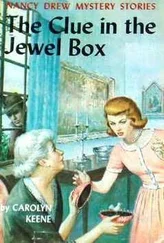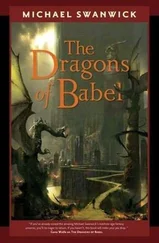Carolyn Parkhurst - The Dogs of Babel
Здесь есть возможность читать онлайн «Carolyn Parkhurst - The Dogs of Babel» весь текст электронной книги совершенно бесплатно (целиком полную версию без сокращений). В некоторых случаях можно слушать аудио, скачать через торрент в формате fb2 и присутствует краткое содержание. Город: New York, Год выпуска: 2003, ISBN: 2003, Издательство: Little, Brown and Company, Жанр: Детектив, на английском языке. Описание произведения, (предисловие) а так же отзывы посетителей доступны на портале библиотеки ЛибКат.
- Название:The Dogs of Babel
- Автор:
- Издательство:Little, Brown and Company
- Жанр:
- Год:2003
- Город:New York
- ISBN:978-0-7595-2806-2
- Рейтинг книги:3 / 5. Голосов: 1
-
Избранное:Добавить в избранное
- Отзывы:
-
Ваша оценка:
- 60
- 1
- 2
- 3
- 4
- 5
The Dogs of Babel: краткое содержание, описание и аннотация
Предлагаем к чтению аннотацию, описание, краткое содержание или предисловие (зависит от того, что написал сам автор книги «The Dogs of Babel»). Если вы не нашли необходимую информацию о книге — напишите в комментариях, мы постараемся отыскать её.
The Dogs of Babel — читать онлайн бесплатно полную книгу (весь текст) целиком
Ниже представлен текст книги, разбитый по страницам. Система сохранения места последней прочитанной страницы, позволяет с удобством читать онлайн бесплатно книгу «The Dogs of Babel», без необходимости каждый раз заново искать на чём Вы остановились. Поставьте закладку, и сможете в любой момент перейти на страницу, на которой закончили чтение.
Интервал:
Закладка:
Let me return for a moment to my preliminary comments regarding the project I am about to undertake. As I have mentioned, I have a dog named Lorelei, a Rhodesian Ridgeback. She was my wife’s dog before she was mine. It is my proposal to work with Lorelei on a series of exercises and experiments designed to help her acquire language in whatever ways are possible, given her physiological and mental capacities. It is my proposal to teach Lorelei to talk.
I realize how this must sound. A year ago I would have been as skeptical as the rest of you. But you have to understand how the events of the past few months have changed my way of thinking. Let me remind you that we, as scientists, have witnessed in the past century the strange spectacle of apes speaking entire sentences with their hands. We’ve seen parrots who have learned to provide the punch lines of dirty jokes, much to the delight of their owners’ friends. We’ve seen guide dogs trained to turn on light switches and to listen for the crying of babies born to deaf parents. I myself have seen, on an amateur video show, a dog who has learned to make the sound “I love you.”
I’m not suggesting that any of the above examples offer conclusive proof I’ll succeed. I’m aware, for a start, that dogs have considerably less cranial capacity than gorillas and other higher primates, and I’m not kidding myself that dogs who say “I love you” and parrots who curse like sailors are doing anything other than performing tricks they know will result in praise and bits of food.
But in the evenings when I sit with Lorelei and she gazes up at me with her wide, inscrutable eyes, I wonder what she would tell me if she could. Sometimes I get down on the carpet with her to speak to her softly and ask her my questions while I rest my hand upon her great furrowed head. More than once I have awakened to find that I have fallen asleep with my head on the wide, rough expanse of her side.
The conclusion I have reached is that, above all, dogs are witnesses. They are allowed access to our most private moments. They are there when we think we are alone. Think of what they could tell us. They sit on the laps of presidents. They see acts of love and violence, quarrels and feuds, and the secret play of children. If they could tell us everything they have seen, all of the gaps of our lives would stitch themselves together. I feel I have no choice but to give it a try.
THREE
There’s a talking-dog joke that goes like this: A man walks into a bar with a dog. The bartender says, “Sorry, buddy, no dogs allowed.” The man says, “Oh, but you don’t understand—this is a very special dog. He can talk.” The bartender looks skeptical but says, “Okay, let’s hear it.” The man puts the dog on a bar stool and looks deeply into his eyes. “What do you call that thing on top of a house?” he asks. “Roof, roof!” barks the dog. “And how does sandpaper feel?” the man continues. “Ruff, ruff!” answers the dog. “And who was the greatest baseball player of all time?” the man asks. “Rooth, Rooth!” the dog says. “All right, buddy,” the bartender says, “that’s enough. Out of here, both of you.” The man takes the dog off the bar stool, and together they leave the bar. As they’re walking out, the dog turns to the man and shrugs. “DiMaggio?” he says.
This is what I’m thinking of as I sit on the floor with Lorelei, looking into her deep brown eyes. I’ve been working with her for two hours now, running a few preliminary intelligence tests, and I have to fight the urge to give up my teacher persona and start talking silly puppy-dog talk to her. “Where have you gone, Joe DiMaggio?” I want to murmur in baby talk, taking her front paws and lifting them up high until she flops onto her back, a little roughhousing game we have. “Huh, girl?” I want to say, rubbing her belly. “Where’s Joe DiMaggio?” But we’ve got a little more work to do, so I just give her a brief pat on the head and say “Good girl” in an authoritative tone of voice.
Rhodesian Ridgebacks are big dogs; Lorelei’s head comes to well above my knee when we’re both standing up. They were originally bred to hunt lions, and they are extremely strong and agile when in pursuit of rabbits or other small game (lions being rather rare in our small college town), but in domestic situations they are exceptionally earnest and gentle. They get their name from a distinctive ridge of hair running down the middle of their backs, hair that seems to grow the wrong way, standing up like a long cowlick against their sleek brown coats. When you run your hand across it, it feels bristly, like the buzz cuts boys used to get when I was small. More than anything, it reminds me of a very stiff velvet chair my grandmother had in her house; the fabric felt prickly against the skin whichever way you rubbed it—it was impossible to sit in if your arms or legs were bare—but when you flattened a bit of the nap with your finger, you could feel the softness that lay between the individual threads.
We began the morning by going through a list I’ve compiled of all the words I know Lorelei understands. She knows her name, of course; I did a brief experiment by calling out other words—broccoli, water bed, Santa Claus—in the same tone I normally use to call her name. She sat up and stared at me when she heard my voice and appeared to listen in a sort of rapture, but she didn’t get up and come running over until I called out “Lorelei.” Good girl, I told her. Good girl.
Next, we moved on to commands. Come, sit, and stay. Down. Paw and other paw. Come on up (spoken while patting the couch cushion in invitation). Do you want to go out?
In the early days of our marriage, Lexy taught her the command “Where’s Paul? Go get Paul,” and on Saturday mornings when I slept late and Lexy got tired of waiting for me to wake up, I would wake to find Lorelei hovering over me, her front paws up on the bed and her face looking down into mine. Strangely, I was never able to retaliate; I was never able to make Lorelei understand “Go get Lexy.” She responds splendidly to “Go get your ball” and “Go get your giraffe”—this last refers to a stuffed toy she likes because its long neck lends itself perfectly to games of tug-of-war—but never “Go get Lexy.” Did she simply not know Lexy’s name? Or did she understand me perfectly but refuse to obey, not wanting to violate the private joke she shared with Lexy, her first owner and love?
All in all, Lorelei knows the meaning of about fifty different words. Dinner and treat. Car and ride. Good and bad. This corresponds roughly to the number of words a human child understands by the age of thirteen months. This is perhaps not a very useful parallel, since by sixteen months or so, a baby will have doubled or tripled that number and will have begun to form rudimentary sentences like “Mama juice” or “Big truck vroom,” whereas for a dog, the list of known words, once learned, will remain more or less static throughout his life. And, of course, at least to an outside observer, the capacity to link words and concepts into sentences as we know them remains outside the dog’s ability.
What interests me, however, is that in children, language comprehension begins long before language production—between the ages of one and three, children understand about five times as many words as they can speak. By what mechanism does that thirteen-month-old make the leap from comprehension to speech? I believe this is the question that lies at the heart of my project.
The one advantage Lorelei has over human infants is that the sharpness of her senses allows her to pick up on nonverbal cues that we, as humans, are barely aware of. She can hear the tying of shoelaces two rooms away, and she stands and stretches, knowing it means that someone is going to leave the house, and that perhaps she’ll be going with them. She understands the clatter of silverware in a drawer and the sound of someone settling down on the couch to read the newspaper. She knew what it meant for Lexy to stand before the bathroom mirror putting on her makeup, and when she smelled the particular combination of odors that comprised this event—perhaps the hair scent of the bristles on Lexy’s cosmetic brushes, combined with the perfumed clay of her foundation and the thick, painty smell of her mascara—she would appear, out of nowhere, in front of the bathroom, and finding the door slightly ajar, she would poke her nose through the crack, waiting to see if she was going to be invited along on whatever adventure Lexy was preparing herself for.
Читать дальшеИнтервал:
Закладка:
Похожие книги на «The Dogs of Babel»
Представляем Вашему вниманию похожие книги на «The Dogs of Babel» списком для выбора. Мы отобрали схожую по названию и смыслу литературу в надежде предоставить читателям больше вариантов отыскать новые, интересные, ещё непрочитанные произведения.
Обсуждение, отзывы о книге «The Dogs of Babel» и просто собственные мнения читателей. Оставьте ваши комментарии, напишите, что Вы думаете о произведении, его смысле или главных героях. Укажите что конкретно понравилось, а что нет, и почему Вы так считаете.












